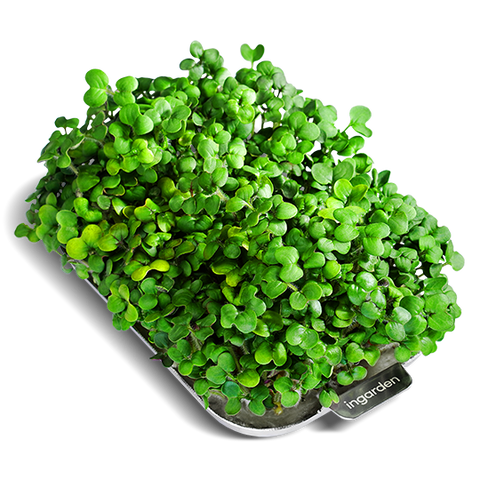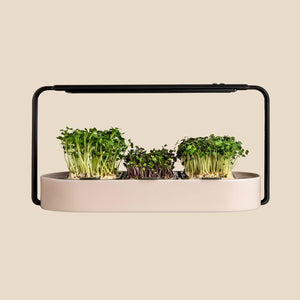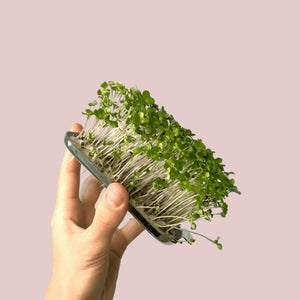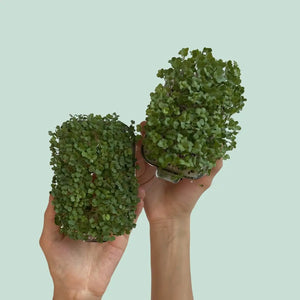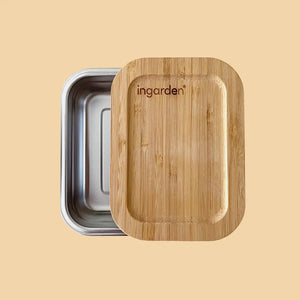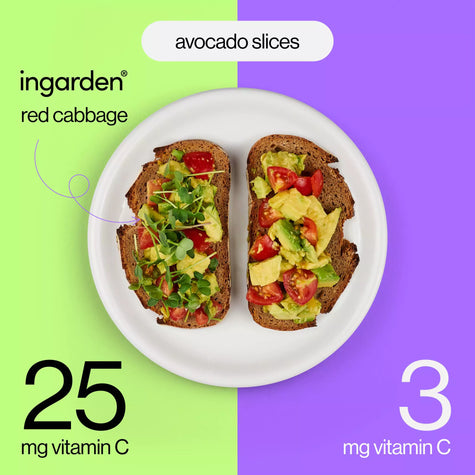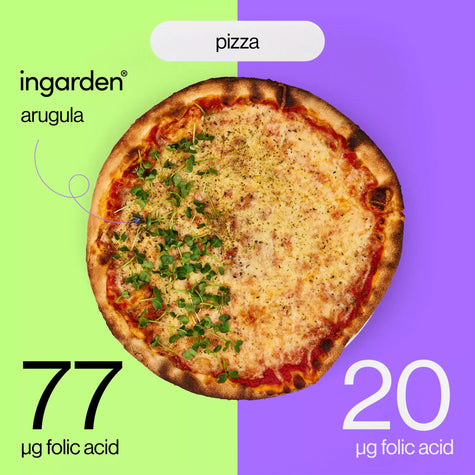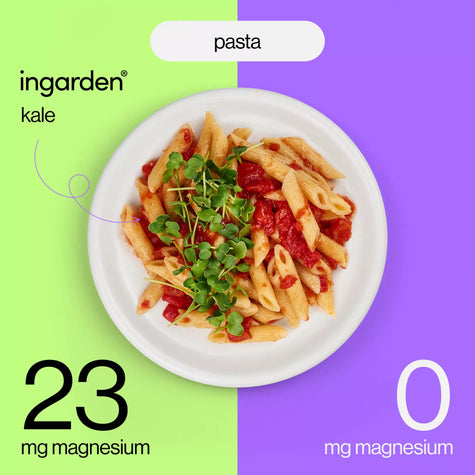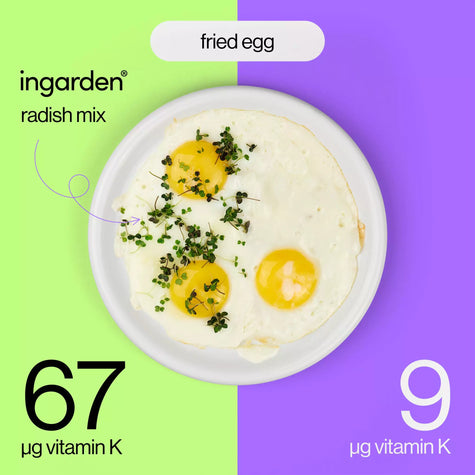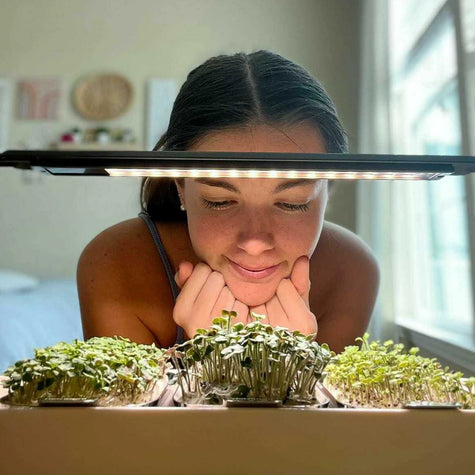Did you know that microgreens contain up to 260 times more nutrients per gram compared to regular vegetables? They may be small, but don’t be fooled—microgreens pack a punch in terms of flavor and nutrition! We’ve compiled a list of the six most nutritious microgreens, all of which can be grown from home using your ingarden device. Check out our starter sets here!
6. Broccoli: High in Calcium
Looking for more calcium? Broccoli is the sixth most nutritious microgreen in our ranking. Broccoli microgreens contain double the amount of calcium per gram compared to regular broccoli. Calcium supports strong bones, making broccoli microgreens an eco-friendly alternative to milk. Try adding broccoli microgreens on top of roasted reg or your next salad.
5. Arugula: High in Beta Carotene
Arugula microgreens rank fifth in our list of the most nutritious microgreens, because they contain more than five times more beta carotene per gram compared to regular arugula. Having plenty of beta carotene in your diet is a great way to support healthy eyes and skin. Arugula has a delicious, peppery taste, and works very well in salads and sandwiches.
4. Kale: High in Zinc and Potassium
Kale ranks fourth in our list of the most nutritious microgreens. Per gram, kale microgreens contain 5.2 times more potassium compared to regular kale. Having a high potassium diet is a good way to reduce your blood pressure and support healthy muscles. Kale microgreens also contain 5.3 more zinc compared to a standard kale plant. Having more zinc in your diet will benefit your immune system and your metabolism. Try adding kale microgreens to your next smoothie or soup.
3. Radish: High in Magnesium
Radish places third in our ultimate guide to the most nutritious microgreens that beat regular veg. Per gram, radish microgreens contain six times as much magnesium compared to regular radish. Adding magnesium to your diet is shown to help regulate blood pressure and support the immune system. Radish is very versatile and is a welcome addition to salads, tacos, and soups.
2. Mustard Seeds: High in Lutein
Mustard seeds are the second most nutritious microgreen in our ranking. Mustard seed microgreens contain nearly nine times more lutein compared to regular amaranth plants. Lutein is a staple part of any healthy diet, because it works as an antioxidant. Mustard seeds also contain selenium, which strengthens your bones, hair, and teeth. Enjoy mustard seeds in a stir fry, or add them to salad dressing.
1. Red Cabbage: High in Beta Carotene, Vitamin E, Vitamin K
Which is the ultimate microgreeen? Red cabbage is our overall winner! They are truly unparalleled in terms of their nutritional content. Per gram, red cabbage microgreens contain a staggering 261 times more beta carotene compared to a regular red cabbage! What’s more, red cabbage microgreens contain 70 times more vitamin K, and 40 times more vitamin E compared to the standard stuff. Beta carotene is good for eye health and skin; vitamin E also supports healthy skin.






